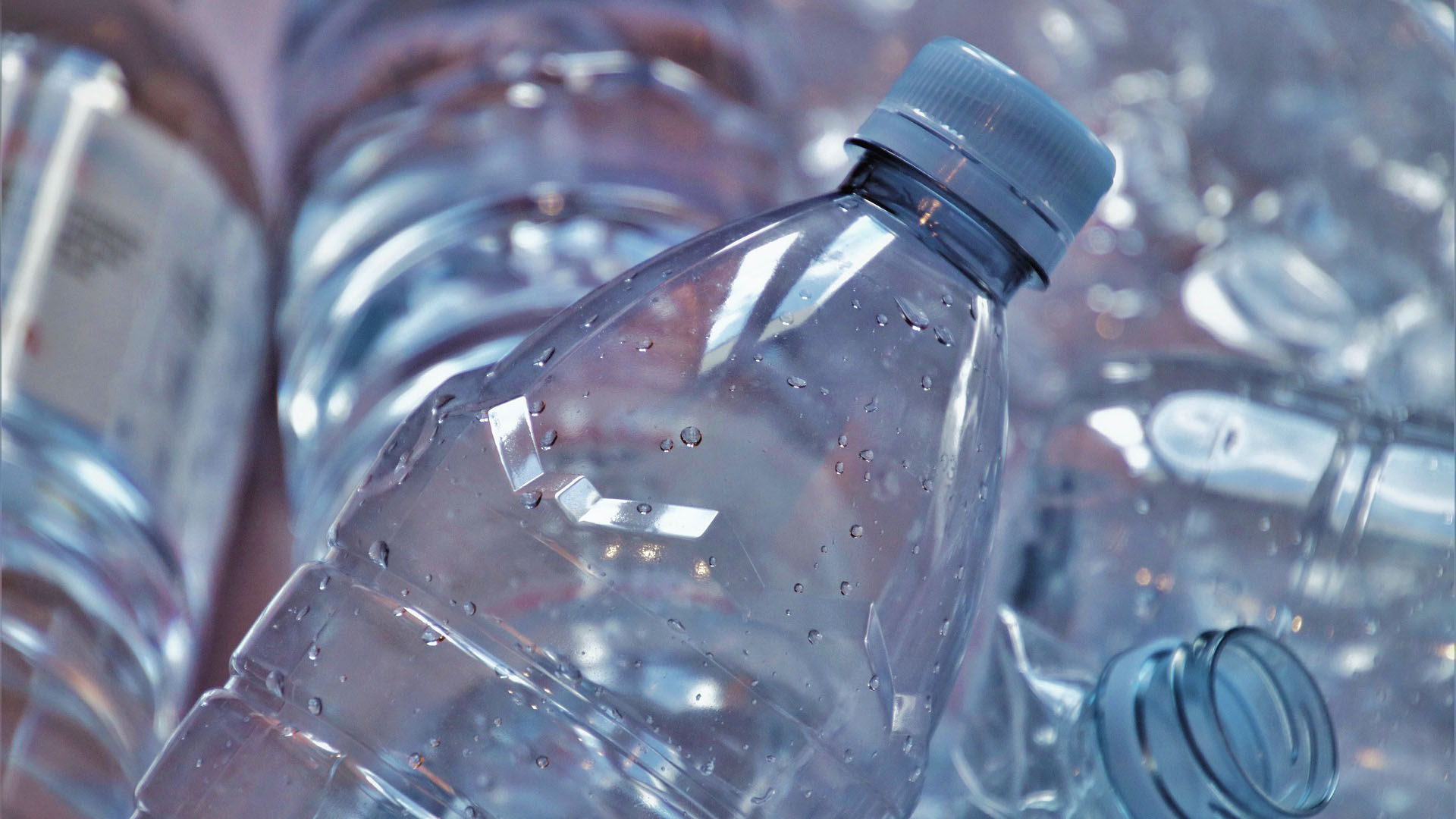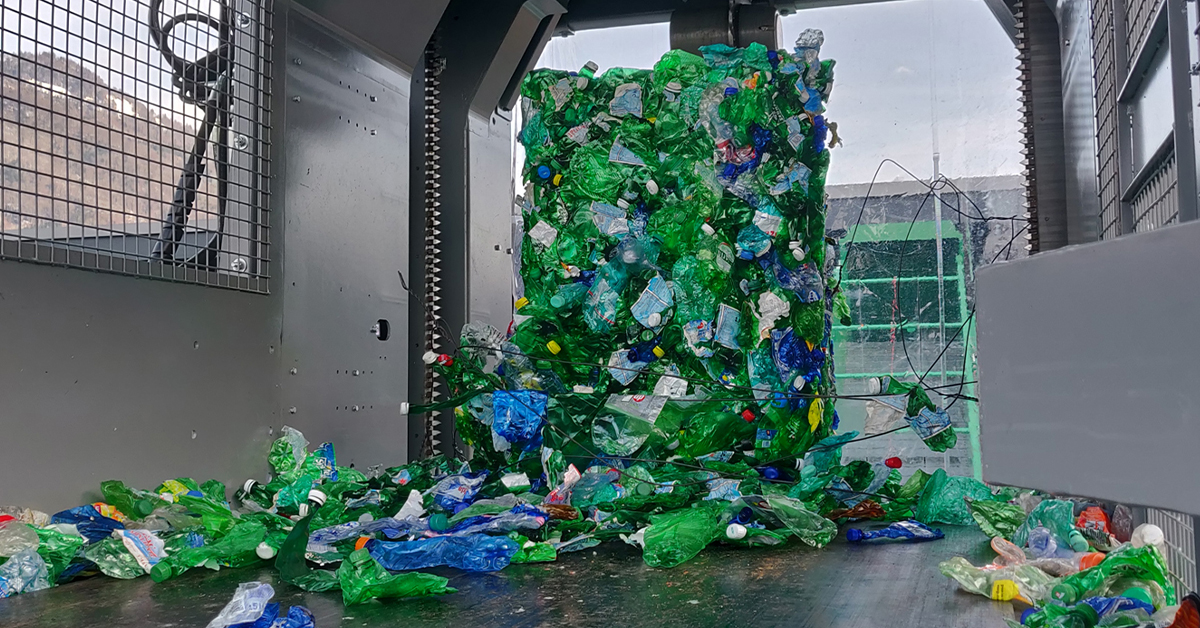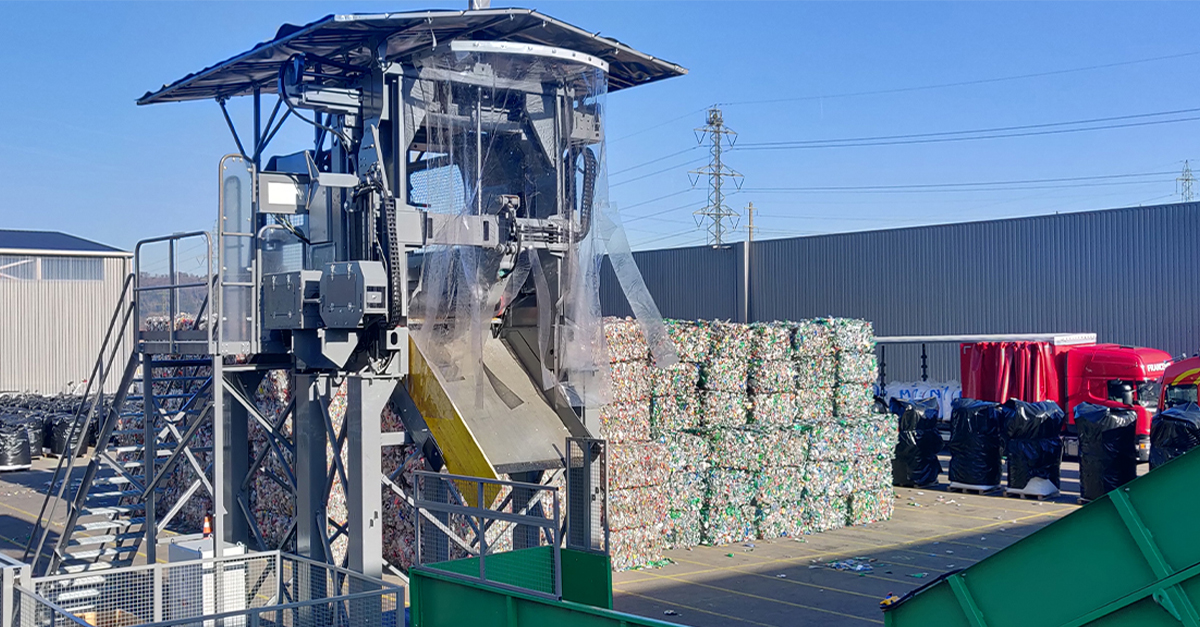Blog
Automatic dewiring improves processes in chemical and mechanical plastic recycling
Dewiring improves chemical and mechanical plastic recycling
Cross Wrap offers solutions that help our clients to provide high quality recycled plastic, regardless of the recycling process.
Plastic is a wonder product due to its a durable material that suits many applications in multiple industries. Whether plastic is used in food packaging, vehicle parts, medical appliances, or electronic equipment, it is a highly necessary and valuable ingredient for many of our everyday products.
Due to its wide use, the environmental effects of plastic have also become a prominent global problem. The disposal of plastic, as well as the emissions related to making plastic, are issues that need to be solved to fight the environmental crisis we are experiencing. The plastic industry calls for circular economy practices. But what is currently being done in the industry to lower the barriers to a more circular plastic economy?

Even though plastic is a big pollutant, it is also a necessary ingredient for many of our everyday products.
The demand for high-quality plastic is increasing
Plastic waste is a prominent global problem. According to the European Parliament, we are only able to recycle 32% of the plastic gathered in the EU. Almost 25% of plastic waste still ends up at landfills, whereas 42% is incinerated. Packaging is the largest contributor to plastic waste, followed by building and construction. In the US, plastic recycling is even less effective. In 2015, only 9% of consumer plastic was recycled, according to the Environmental Protection Agency. 31 million tonnes of plastic is gathered in the US annually. The statistics are staggering, even though the problem has been prominently discussed for decades.
However, there is positive development taking place – big companies are currently taking steps to reduce the environmental impact of their plastic use. Global megabrands like Coca-Cola, Unilever, and Procter & Gamble have taken ambitious steps to increase the use of recycled plastic in their products. Actions like these put pressure on competitors. The move towards a more circular plastic economy also increases the demand for recycled plastic raw materials.
Brand owners want excellent performance from recycled plastics too – they must perform like virgin plastics and be as applicable. Chemical recycling methods can be an answer to the performance issues mechanical plastic recycling has. One of the ways to offer more high-quality recycled plastic is to develop more effective recycling methods and the machinery to back it up.
Mechanical vs. chemical recycling

Developing more effective plastic recycling methods decreases the need for virgin plastics in many industries.
There are two primary ways to recycle plastic: mechanical recycling and chemical recycling. In mechanical recycling, plastic is mechanically sorted and crushed into pellets or flakes. Mechanical recycling also produces granulates by remelting recycled plastic. The granulate can be used to create new products, which decreases the need for fossil-based plastic. However, mechanical plastic recycling is not suitable for all types of plastic waste. If the incoming plastic waste is contaminated or has many different plastics mixed together, the resulting granulate is not high quality. It cannot, for example, be used for food packaging.
“Brand owners want excellent performance from recycled plastics too – they must perform like virgin plastics and be as applicable.”
Thus, the plastic recycling industry has been developing novel chemical plastic recycling methods to complement mechanical recycling. Chemical plastic recycling is an umbrella term for various novel plastic recycling technologies. In the process, mixed and contaminated plastic, that are difficult to recycle mechanically, are turned into liquid renewable plastic raw material, which can be used as a substitute for crude oil in plastic manufacturing. Chemical plastic recycling can help the plastic economy become more circular, as chemically recycled plastic can possibly be used as a higher quality material than mechanically created plastic. This reduces the need for virgin plastic – especially in food industries.
Many plastic recyclers have begun to test chemical plastic recycling methods in the recent years. The methods are becoming increasingly profitable. As chemical plastic is commercializing and new chemical recycling plants are being built, the production machinery needs to be chosen. Both new and established recycling methods require reliable and effective solutions.
Process benefits from recycled plastic bale handling
 Cross Wrap’s automatic bale dewiring machine offers benefits for both chemical and mechanical plastic recycling processes.
Cross Wrap’s automatic bale dewiring machine offers benefits for both chemical and mechanical plastic recycling processes.
Cross Wrap has long specialized in easing the process for plastic recyclers. The CW Dewiring Machine was created from customer needs to remove binding metal wires from tied bales. The machine offers you safe, automated, and optimized material infeed, regardless of whether you recycle plastic chemically or mechanically.
Steady infeed of material is essential for all plastic recycling processes. Our Dewiring Machine opens recycled plastic bales reliably and automatically. This is the more safe and efficient option – it requires less manual labor and less work hours from employees, as well as enables an optimized feeding process.
Removing metal wires is also an essential part of keeping the infeed of your process as high quality as possible. The Dewiring Machine cuts and removes the metal wires from the bale and coils the wires neatly into easily recyclable bundles. Keeping metal wires out of your plastic infeed helps you to better maintain your other recycling machinery, as the metal wires do not have the chance to damage the process.
To make any form of plastic recycling more cost-effective, the material infeed needs to be effective and smooth. Effective machinery helps with this problem. Cross Wrap’s Dewiring Machine has been chosen by the leading professionals in the plastic recycling industry. Read more about Cross Wrap’s plastic recycling solutions here.
